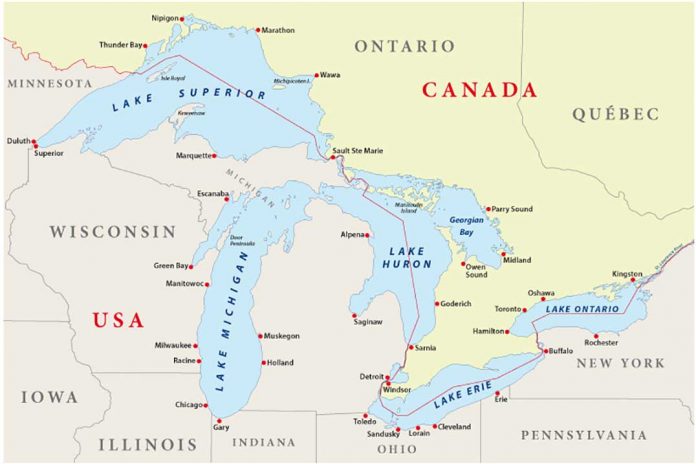SUDBURY—The Rural and Northern Immigration Pilot (RNIP) has been successful in connecting businesses and employers in remote communities with the skilled newcomers they need to thrive according to the Minister of Immigration, Refugees and Citizenship and to that end, the Honourable Mark Miller announced two new pilot programs aimed at creating a permanent rural immigration program.
“Rural and northern communities face unique economic and demographic challenges. However, through the RNIP, rural communities have been able to attract and retain skilled workers that they’ve needed for years to ensure their economic growth,” said Minister Miller. “That is why we will make RNIP a permanent program and why we are introducing these two new pilot programs. We’ll continue to work closely with these communities, as we work to connect businesses with the skilled workers they need to thrive.”
The two programs being announced, the Rural Community Immigration Pilot and the Francophone Community Immigration Pilot, take note of the need to ensure that rural communities continue to have the ability to access programs that address labour shortages and help local businesses find the workers they need, according to a FedNor release heralding the announcement.
The Rural Community Immigration Pilot will launch in the fall of 2024 and is intended to provide “pathways to permanent residence for newcomers who can help to overcome critical labour job shortages and want to live long term in these smaller communities.”
“Modelled on the success of the RNIP and as part of our Francophone Immigration Policy, we are also launching the Francophone Community Immigration Pilot in the fall of 2024,” noted the minister in making the announcement. “The pilot will focus on increasing the number of French-speaking newcomers settling in Francophone minority communities outside of Quebec and will help ensure the economic development of Francophone minority communities, while also helping to restore and increase their demographic weight.”
The community application process will open this spring to select communities, who will then participate in the pilots and will share more details in the coming months.
“As we work to establish RNIP as a permanent program, these new pilots will help attract and retain skilled foreign workers in rural and Francophone minority communities, contributing to their economic and linguistic vitality,” noted the minister. “IRCC looks forward to continued collaboration with these communities as we work together to strengthen our immigration programs.
“Employers across the region from many sectors have been calling for more ways to build their workforce due to unprecedented skilled worker shortages,” said Nickel Belt MP Marc Serré, parliamentary secretary to the minister of Energy and Natural Resources and to the minister of Official Languages. “Working hard with our government, we implemented the highly successful RNIP program, and now, by launching the Rural Community Immigration Pilot and the Francophone Community Immigration Pilot, we will further support a pathway towards RNIP becoming a permanent program. This will broaden the scope for employers to build stronger workforces and contribute to our local economy serving residents in both official languages.”
“We’ve seen first-hand both the impact and importance of RNIP. RNIP has proven to be a great asset to attracting skilled labour and growing the population of Sudbury,” noted Sudbury MP Viviane Lapointe. “Not only has the program directly addressed gaps and challenges such as the labour shortages, but it also continues to drive economic prosperity for our communities in ways that will have a generational impact.”
As of December 31, 2023, 4,595 newcomers received permanent residence through the RNIP, helping address labour shortages in key sectors such as health care, accommodation and food services, retail, manufacturing, scientific and technical services.
On February 21, 2024, IRCC extended the deadline for current RNIP communities to recommend candidates for permanent residence until July 31, 2024. IRCC also increased the number of candidates that communities can recommend. These changes allow participating communities to take part in the pilot for a longer period and continue meeting their labour needs with skilled candidates.
On October 31, 2023, IRCC released ‘An Immigration System for Canada’s Future’—a report that lays out a pathway aimed at strengthening Canada’s immigration system to better meet the needs of the country and of newcomers. As part of the work to implement the actions identified in the report, IRCC continues exploring opportunities to enhance regional immigration, including through the Rural Community Immigration Pilot.




